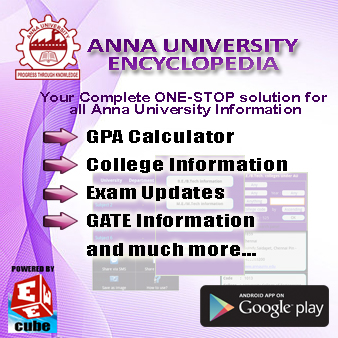Hello EEEcube users, the end-semester exams are nearing. Now most/all of you should be having your study holidays. I came across this nice article which I feel will be useful for you in planning your study holidays. Its very practical. Just go through it, feel free to add your ideas or any comments below.
(reposted with permission from beallpass.blogspot.in)
Every student will get afraid of the exams. Even the brightest student will get afraid when the exam days nearing. I am going to provide you the tips to utilize the study holidays before the exam starts. Every university will provide some time to prepare for the exams before the exam starts. It may be one week or two week or some time it may be one month. If you utilized the study holidays you don’t want to get afraid of the exams and you will clear all the exams without any arrears. Follow the below steps to utilize the study holidays.
1. Calculate how many days leave they are providing for the study holidays.
2. Divide the days for the total number of subjects you have. (ex. If you got 15 days leave and you have 5 subjects 15/5 = 3 days for a subject).
3. Now plan for the 3 days to complete the subject in time.
4. Split up the days as follows.
5. Study for 12 hours a day. Sleep for 8 hours and 4 hours to relax you. In that four hours relaxation play for 1 hour listen to music for 1 hour and 2 hours of your wish. The important thing is don’t take 4 hours continuously. Take one hour continuously and split the break hours for four times.
6. Plan the 12 hours perfectly. Split the time to study a question or the subject. (I usually take 5 hours to finish a subject.) Set the target for yourself and start.
7. The best time to study is the morning hours and in the evening hours. Wake up by 5.30 or 6 am and start studying till 10’o clock. After that you will get bored.
8. Take a break of one hour for bathing and have your breakfast for 45 minutes. Have fun in the remaining 15 mins and go back to study.
9. Study up to 1’o clock and have your lunch have a small sleep and go back to study at 4 pm. Sleep for 2 hours in this 3 hours break.
10. Study till 6’o clock and have a break for the tea and have some fun around you for one hour.
11. Start studying at 7’o clock and study till 9’o clock. Take one hour break for the dinner and watch some shows on TV.
12. Go back to studying at 10’o clock and study till 12’o clock in night. Go to bed and wake up in the next morning at 6’o clock and continue the same procedure for the next days.
If you follow this procedure you will surely finish all your subjects in time and you will have sufficient time during the exam time to revise your subjects.
|
|












No comments:
Post a Comment
Note: Only a member of this blog may post a comment.